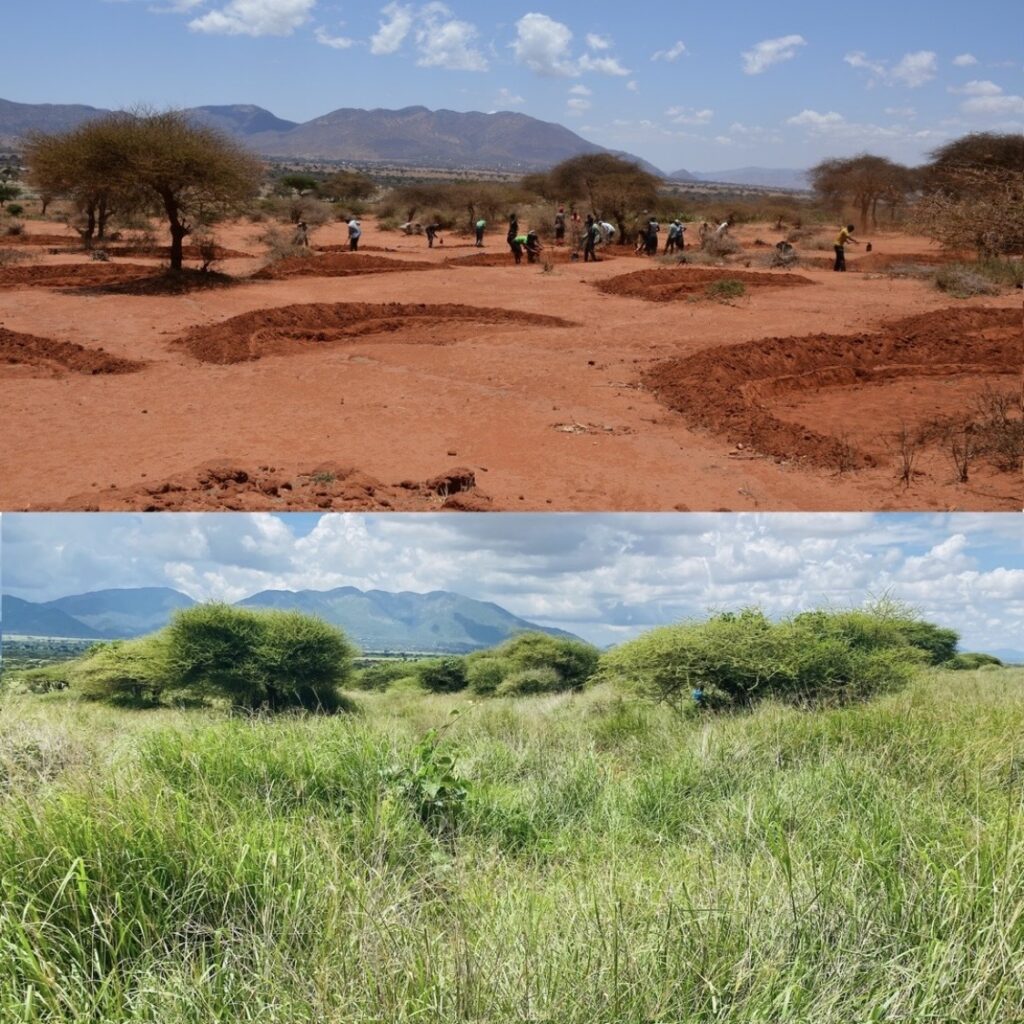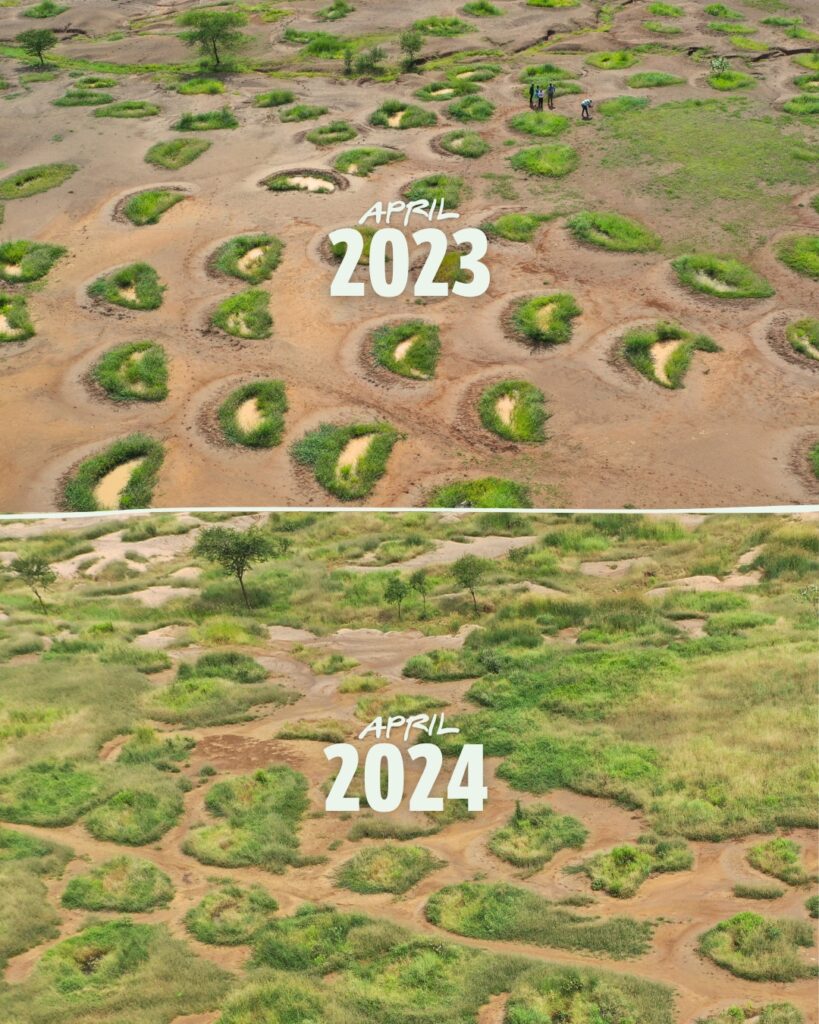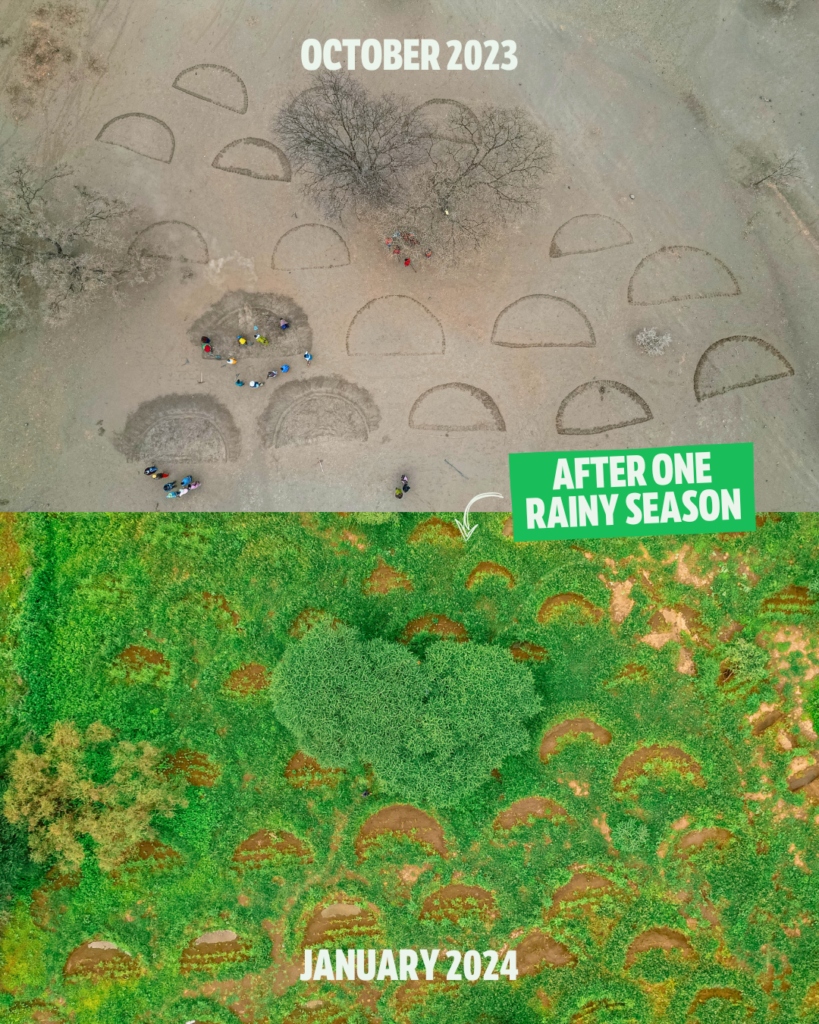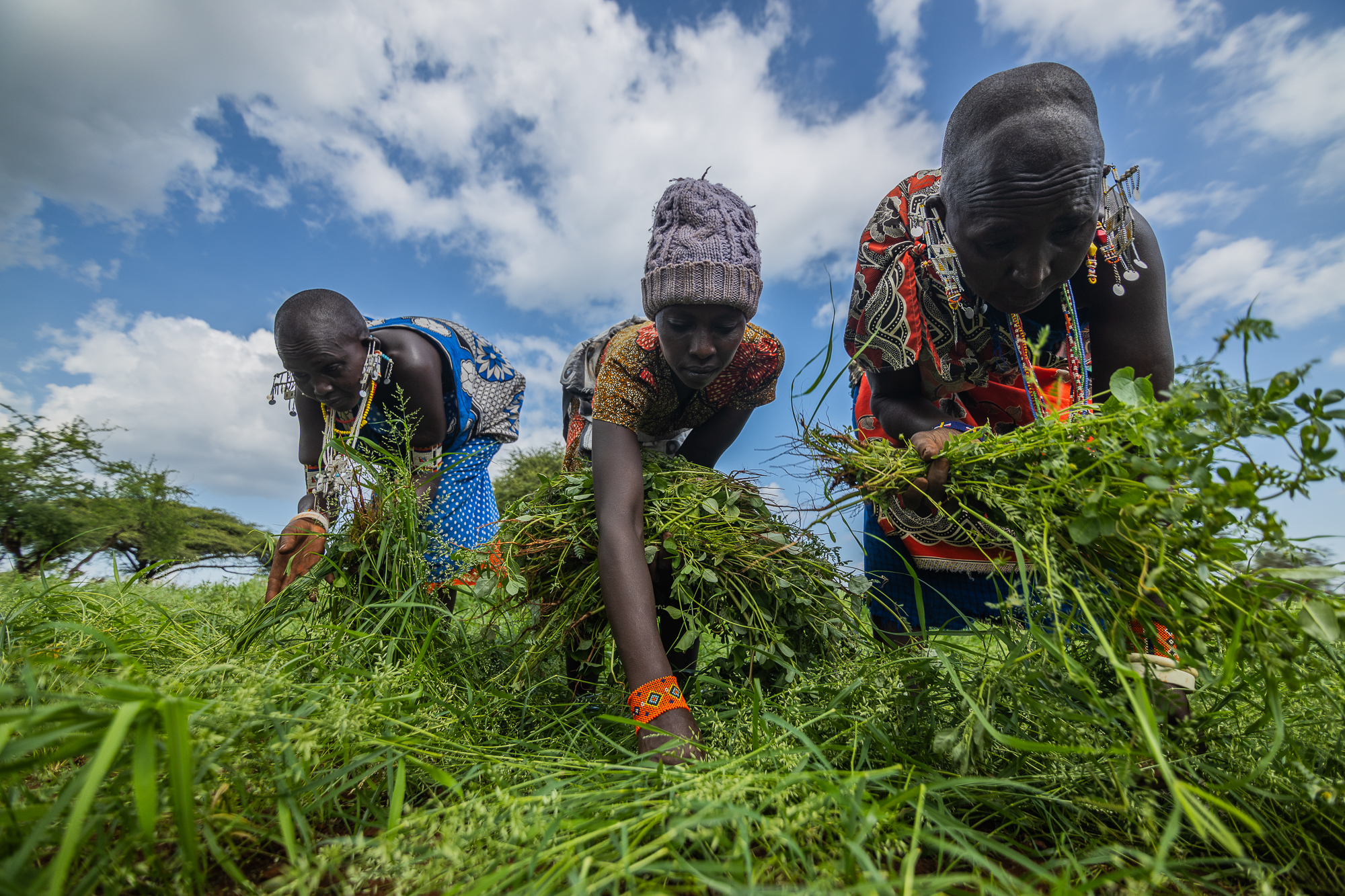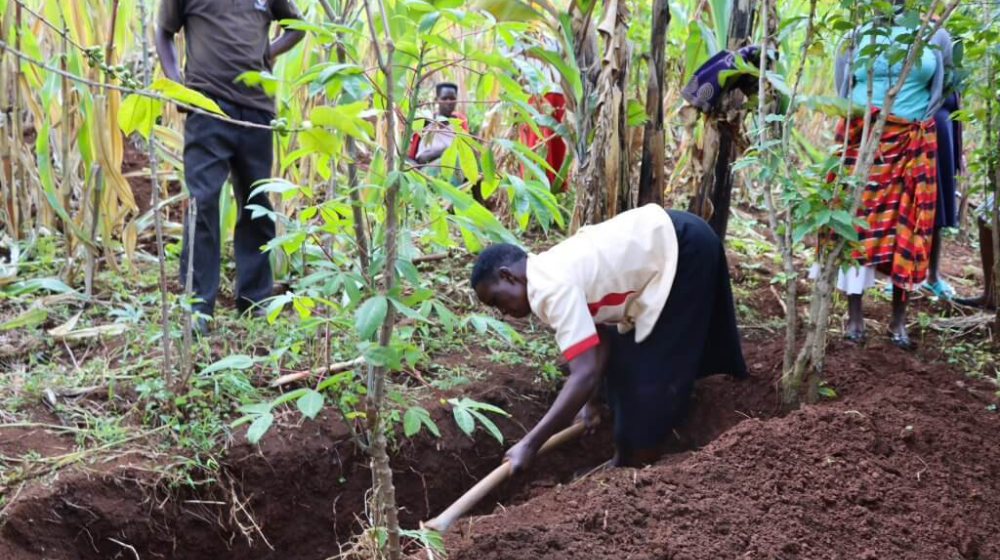Sometimes all it takes is a small gesture to revive the earth. A half-moon dug into the dust, a forgotten stump left to grow back, a few seeds protected from drought. These are the gestures that Justdiggit carries out every day to restore Africa’s degraded ecosystems. With immense ambition and simple means: to put nature back at the centre, with and for the communities that live there. Identified by EPIC after a rigorous selection process, Justdiggit benefits from the direct support of Almayuda. (The EPIC Foundation brings together donors committed to high-impact projects).
Every year, at least 100 million hectares of healthy land, 20 million of which are in sub-Saharan Africa, become unproductive due to soil degradation (figures from the United Nations Convention to Combat Desertification – UNCCD 2023).
Justdiggit was born out of a vision: to combat the harmful effects of climate change, we need to quickly, sustainably and extensively reforest arid lands. And to do this, we can trust nature because it ‘knows how’. Millions of tree stumps, for example, still live on parched soil. If given the chance, they will grow back. If we protect them, they provide shade. If we support them, they regenerate landscapes, water and life.
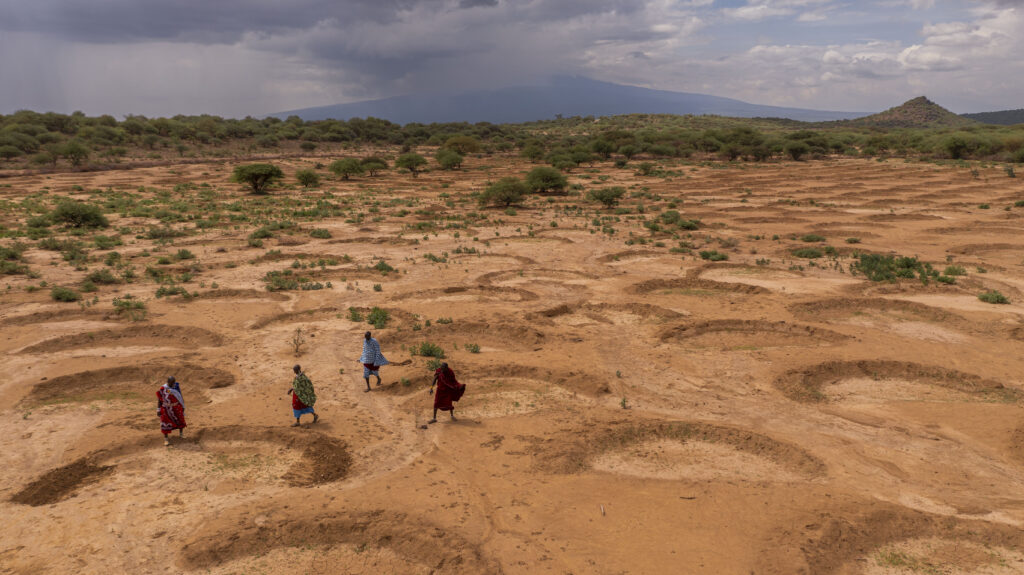
Three levers for transformation
Since its creation in 2010, Justdiggit has turned this vision into a mission. It operates in six African countries: Kenya, Tanzania, Togo, Ethiopia, Madagascar and, since 2023, Senegal, to restore degraded land by mobilising rural communities, ancestral techniques and technological innovation. The result? A local and systemic action that has already restored more than 400,000 hectares of land and regenerated more than 153 million trees.
This restoration is based on three levers:
Rainwater Harvesting: collecting rainwater using ‘bunds’ (half-moons dug into the ground).
Treecovery: assisted tree regeneration.
Grass Seed Banks: grass seed banks.
Rainwater Harvesting: capturing water
The most pressing need in areas affected by desertification is water. Justdiggit has developed a method based on digging bunds, large half-moon shapes in the ground. When it rains, which is rare, instead of the water running off and being lost, it collects and slowly seeps into the soil. This simple action profoundly changes the structure of the soil: it becomes fertile, grass grows back, and the temperature drops.
The difference between the before and after images is striking: yellow, barren plains give way to low-lying but living vegetation, which becomes a refuge for insects, birds and herds. Oases of freshness reappear.
Treecovery: regenerating rather than replanting
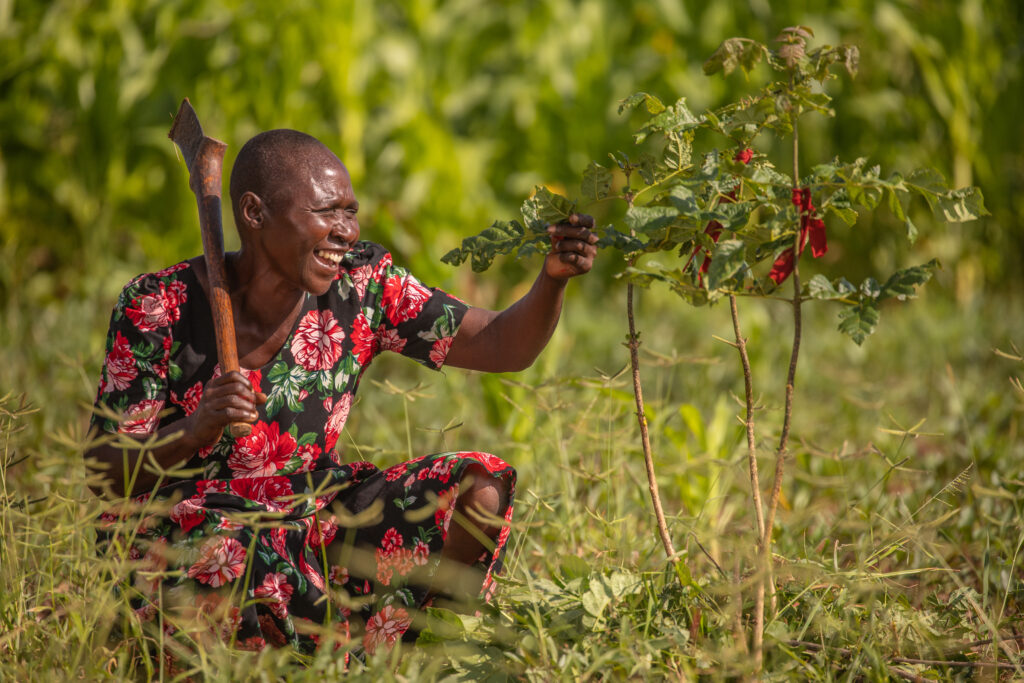
Justdiggit does not plant trees, but regenerates those that are already there, almost invisible but still alive on their stumps. The technique, called Farmer Managed Natural Regeneration, is based on an ancestral Maasai skill: Kisiki Hai. Farmers select one or two small, vigorous branches, cut off the others, and focus the tree’s energy on regrowth. The result is faster, stronger and more resilient than planting.
This technique, which quickly transforms degraded landscapes into lush forests, also gives local communities an active role in restoration: they do not wait for tree donations, they rediscover their power to act with what they already have.
Grass Seed Banks: cultivating inclusion
The origin of these ‘seed banks’ also comes from the Maasai country, where women grow local herbs and grasses on small protected plots. They harvest the seeds and store them before selling them at local markets or to other reforestation projects.
This creates sustainable micro-economies, biodiversity reserves and powerful levers for empowerment. Where women were once excluded from decision-making, they are now becoming guardians of the soil and economic actors. This is not just ecological regeneration: it is social transformation.
Technology to scale up
But what sets Justdiggit apart is its ability to think big when it comes to awareness, education and communication with local communities, farmers and pastoralists. To address the climate emergency, solutions must be scalable. That’s why, in 2023, the organisation launched a mobile app, available on basic phones, that gives millions of farmers access to training modules, generated in part by artificial intelligence.
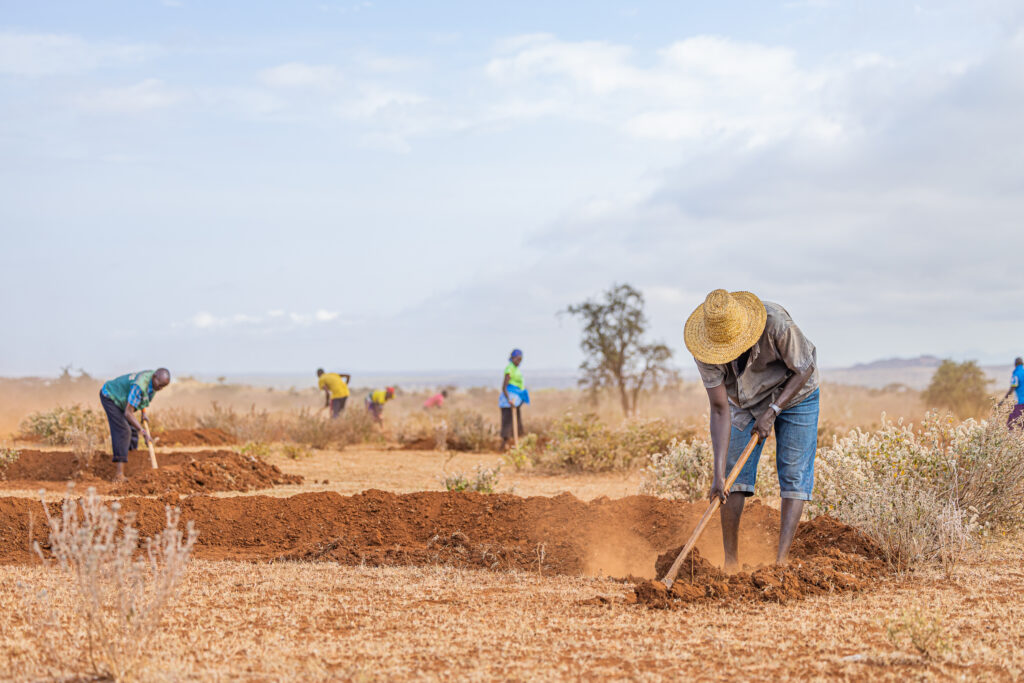
Available in local languages, the app allows users to receive personalised advice, document their progress, share photos of their plots, and draw inspiration from others. The goal is to reach millions of people in Africa. Here, technology becomes a tool for transmission, equality and impact, encouraging people to initiate their own reforestation projects.
The results of 15 years of action
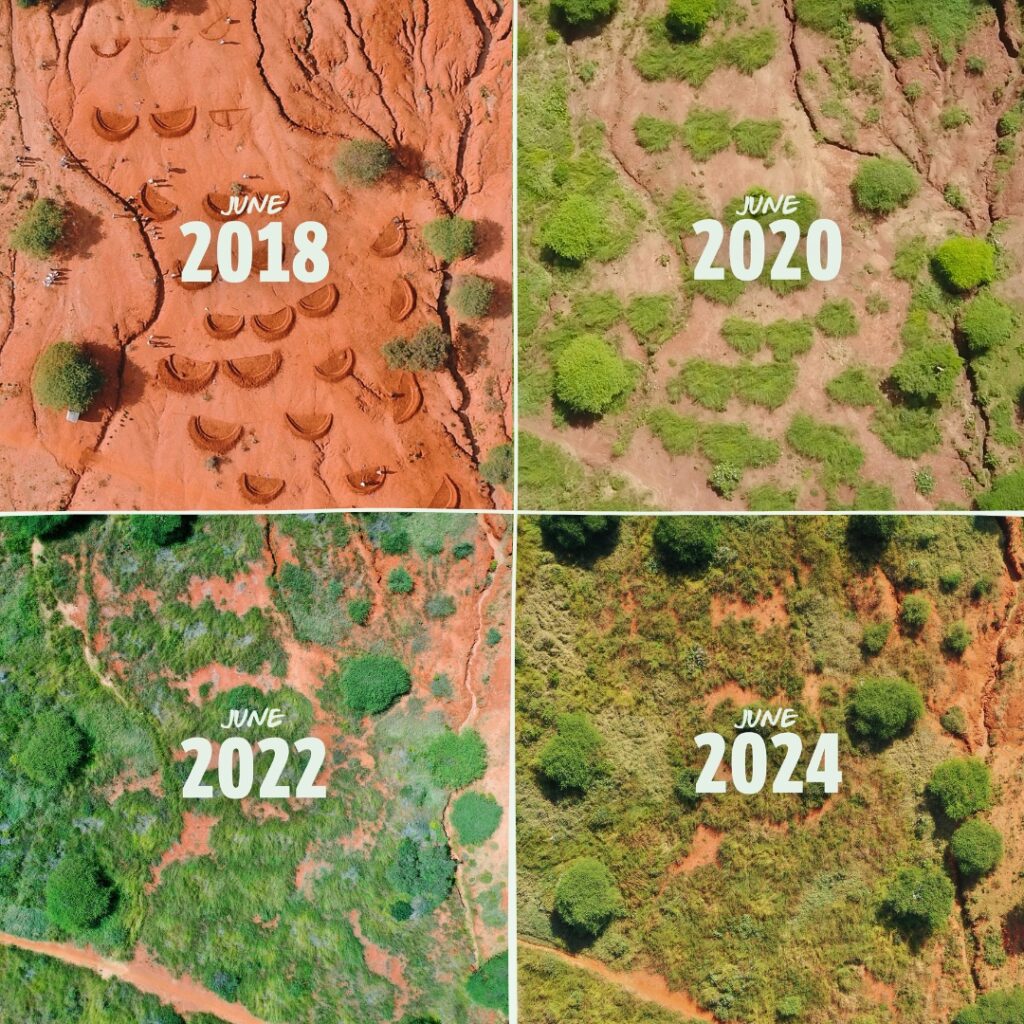
– 400,000 hectares restored
– 153 million trees regenerated
– 5 billion litres of water retained each year thanks to half-moons
– 18 million farming households reached
– 18,772 programme participants trained and supported
And this is just the beginning, as Justdiggit aims to further expand its programmes to other countries, intensify digital training and continue to build bridges between local action and global challenges. To achieve this, it can count on its integration into the ‘Climate and Environment for Future Generations’ branch of the EPIC ecosystem.
EPIC: structured, rigorous and transparent philanthropy
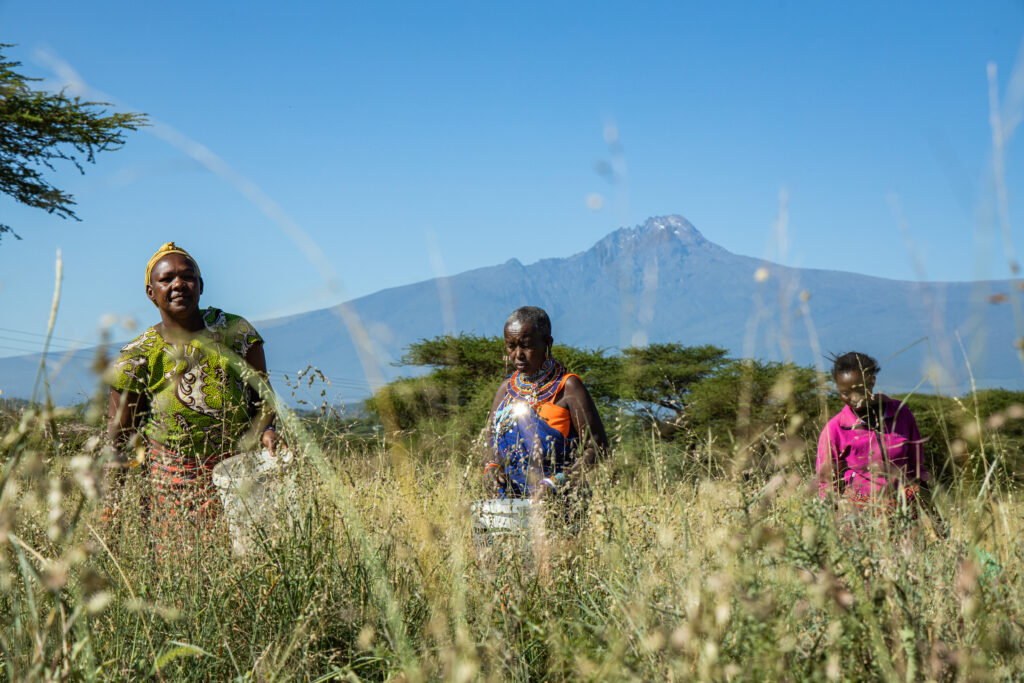
The idea developed by the founder of EPIC: to build bridges between philanthropists and high-impact associations. To do this, two approaches are combined:
– Venture Philanthropy, which applies private equity methods to the non-profit sector (proactive selection, strategic support, regular evaluation).
– Trust-based philanthropy, which places trust at the heart of the relationship with organisations (unrestricted funding, beneficiary autonomy, bilateral transparency).
Each organisation receives support for at least three years, with annual funding of at least £80,000 and no conditions on how the funds are used! In return, each project is monitored three times a year and a regular impact report is produced.
The originality and strength of EPIC also lies in the fact that its administrators cover all operating costs. Every euro received from its donors is invested in the selected projects!
All this with zero management fees deducted from donations. In fact, EPIC’s board covers all operating costs!
New generation
Among the 22 associations in six areas of action: health, education, equality, mental health, climate/environment, and poverty alleviation, Justdiggit is a key player in the ‘Climate and Environment for Future Generations’ portfolio.
It perfectly embodies this new generation of organisations: local, rigorous, innovative and community-based, which Almayuda is delighted to support.
Photos: DR
Useful links
https://justdiggit.org/
https://epic.foundation/fr/accueil/


